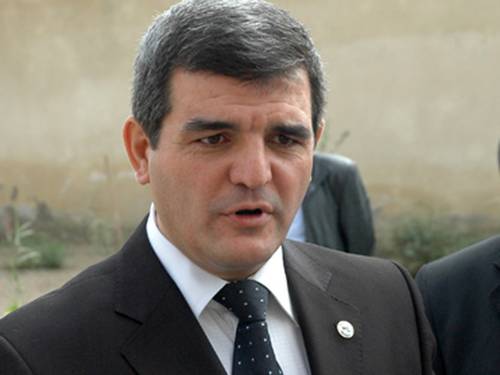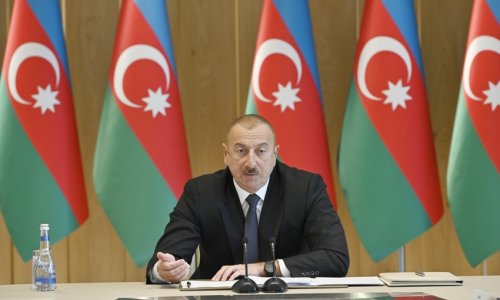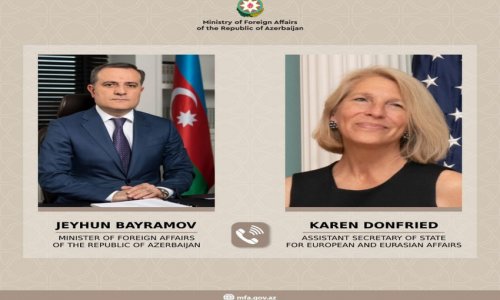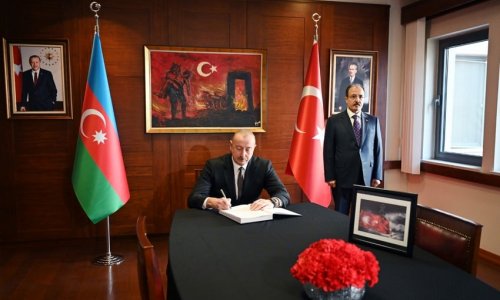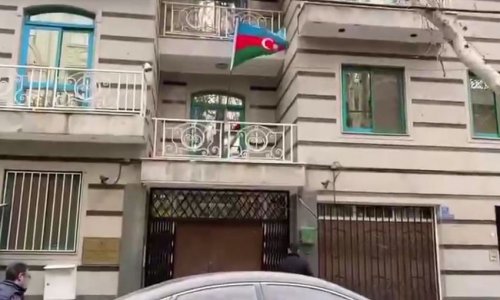By Paul Goble
Moscow’s plans to push through a law establishing criminal penalties for those who deny that the 1915 events in the Ottoman Empire were a "genocide” have sparked unusual dissent among members of the Azerbaijani diaspora in the Russian Federation. This, in turn, has raised speculation about how much power Baku has over that more than two-million-strong community. At least one commentator has suggested that Moscow must crack down on Russia’s Azerbaijanis—who include both individuals with Russian citizenship and those without—lest they be used by Baku to "knife” Russia in the back (Regnum, December 12, 2015).
The discussion, which has percolated over the long holiday season, is important because it calls attention to the reality that the Azerbaijanis in Russia are very different from the guest workers from other Central Asian and Caucasian republics. Moreover, they are sufficiently well-organized to constitute a political force, even if it is far from certain to what degree Baku itself controls all of them.
In the case of most of the countries of Central Asia and the Caucasus, the large numbers of their co-nationals in Russia are guest laborers, people who have come to work in the Russian Federation because of hardships at home. Relatively few of them are Russian citizens, and they are more likely to be a lever for Moscow than a lever for any of their countries of origin, given the size of their transfer payments home—as much as half of Tajikistan’s GDP, for example—or as a safety valve given massive unemployment in these countries (see EDM, September 15, 2015).
But the Azerbaijanis are different. On the one hand, many of them have been in the Russian Federation for a longer period of time and have acquired Russian citizenship. And on the other, even those who have acquired Russian citizenship routinely organize all ethnic Azerbaijanis, with citizenship or not, into groups in regions across the country. They are thus potentially a political resource for someone, although whether they are a resource for Baku, as some suggest, or one that Moscow might exploit is far from entirely clear.
The current case throws some light on this issue. On December 6, 2015, 30 leaders of Azerbaijani diaspora organizations sent a letter to Sergy Naryshkin, the speaker of the Russian State Duma, complaining about Russian plans to adopt legislation that would make it a crime to deny the 1915 events in the Ottoman Empire as an "Armenian genocide.” The authors said that they were upset by this especially since the Russian government had refused to acknowledge that the Hojali massacres in 1992 were a "genocide” of Azerbaijanis by Armenian forces (Vesti.az, December 7, 2015).
The appeal concluded that if the law passes without amendment, it will "not serve to promote the harmonization of inter-ethnic relations in multi-national Russia and that the Azerbaijanis of Russia will "continue the public denial of ‘the genocide of Armenians’ ” whatever criminal penalties that might entail. In turn, that declaration has led one analyst to say that Baku already plans to use the diaspora against Moscow in the event of a crisis; whereas, one Azerbaijani politician now argues that Baku must organize things so that it will be able to do just that.
In a commentary for Russia’s Regnum news agency, Fakhraddin Aboszoda, a leader of the anti-Baku Lezgin community, argues that the Azerbaijani diaspora’s appeal is just the tip of a much larger and more dangerous iceberg. Baku, he says, "with each day, is ever more strengthening the ranks of its ‘fifth column’ on the territory of the Russian Federation. [Azerbaijani] diaspora organizations exist in all major cities of Russia. But the problem for Russia is hardly the existence of such organizations. The misfortune is that all of them are first directed from Baku, second, demonstratively serve the interests of Azerbaijan and do not bother to conceal that, and third, at decisive moments for the Russian state [they] openly speak out against Russia and its president” and even threaten civil disobedience (Regnum, December 12, 2015).
Aboszoda dismisses Azerbaijani complaints about Federal Security Service (FSB) actions against them or the talk of divisions within the Azerbaijani diaspora that might suggest the group is anything but united under a single command. Instead, he says, Azerbaijan, in alliance with Turkey, "is demonstrating to Russia that [the two countries] have the ability to form a unique front for the struggle against it in the looming geopolitical conflict.”
Such comments might be dismissed as nothing but overheated rhetoric given Moscow’s current conflict with Ankara. But there is more direct evidence that Baku is trying to organize and use the Azerbaijani diaspora in Russia. Fazil Mustafa, a deputy in the Azerbaijani parliament, has declared that "the most important task is to create such organizations of the Azerbaijani diaspora in Russia that, in their interaction with the government and state organs of Azerbaijan, will defend the interests of our country in Russia” (Kavkazgeoclub.ru, January 12; Haqqin.az, January 5).
If these trends continue, at the very least they are likely to spark a new wave of anti-Azerbaijani feeling among Russians. But they may, at the same time, act as a constraint on Moscow, serving the Russian government notice that any move against Azerbaijan will have domestic consequences within Russia.
(jamestown.org)
www.ann.az
Follow us !

